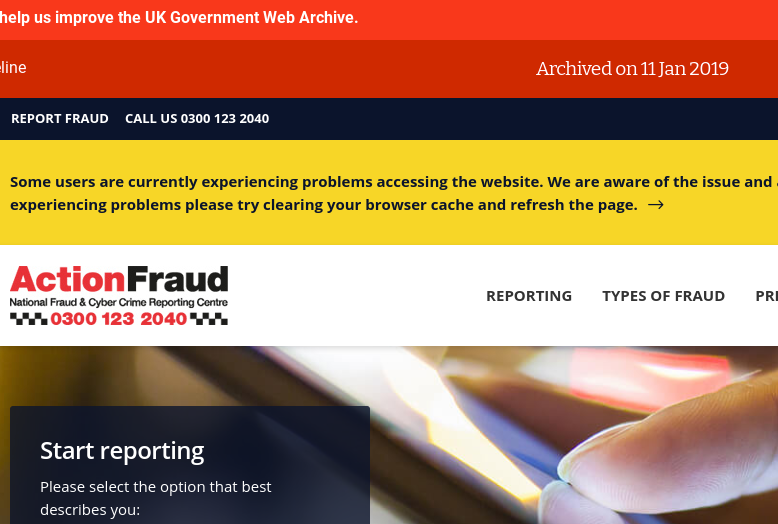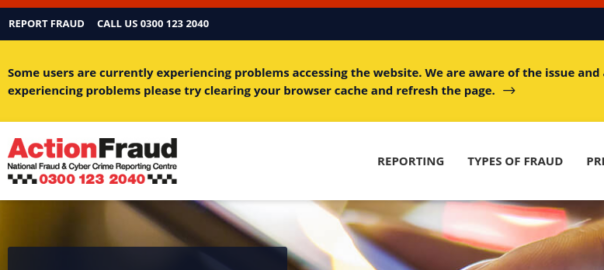
Yesterday I was asked for advice on anonymously reporting a new crypto scam that a potential victim had spotted before they lost money (hint: to a first approximation all cryptocurrencies and cryptoassets are a scam). In the end they got fed up with the difficulty of finding someone they could tell and gave up. However, to give the advice I thought I would check what the National Crime Agency’s National Cyber Crime Unit suggested so I searched “NCA NCCU report scam” and the first result was for the NCA’s Contact us page. Sounds good. It has a “Fraud” section which (as expected) talks about Action Fraud. However, since 2019 this page has linked to the National Archives archive of an old version of the Action Fraud website. So for three years if you followed the NCA’s website’s advice on how to report fraud you would have got very confused until you worked out you were on a (clearly labelled) archive rather than the proper website, which is why none of the forms work.
I reported this problem yesterday and I do not expect it to have been fixed by the time of writing but this problem going unresolved for three years is a clear example of the difficulties faced by victims of cybercrime.
2019 is also the year that Police Scotland declined to pay for Action Fraud as they did not consider it to provide value for money and instead handle fraud reporting internally.
I am PI of a jointly supervised between the University of Strathclyde and the University of Edinburgh PhD project funded by the Scottish Institute for Policing Research and the University of Strathclyde on Improving Cybercrime Reporting. Do get in touch with other stories of the difficulties of reporting cybercrime. The student, Juraj Sikra has published a systematic literature review on Improving Cybercrime Reporting in Scotland. It is clear that there is a long way to go to provide person centred cybercrime reporting for victims and potential victims. However, UK law enforcement in general, and Police Scotland in particular know there is a problem and do want to fix it.
